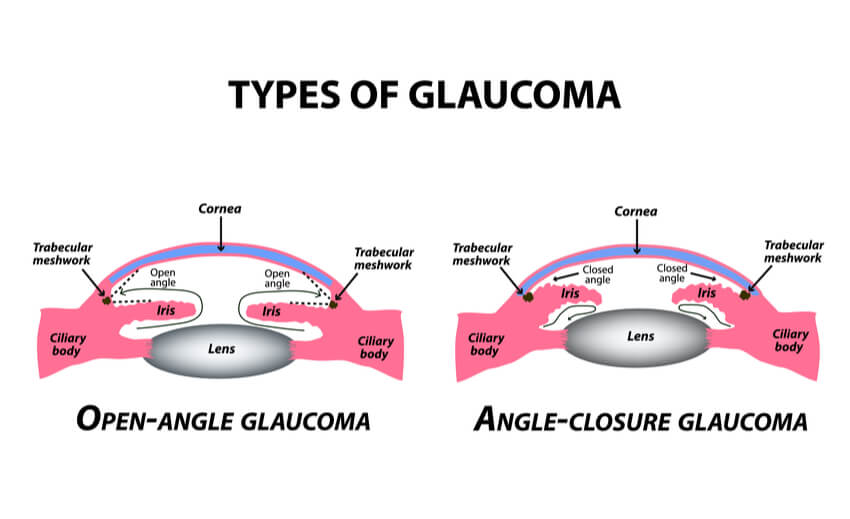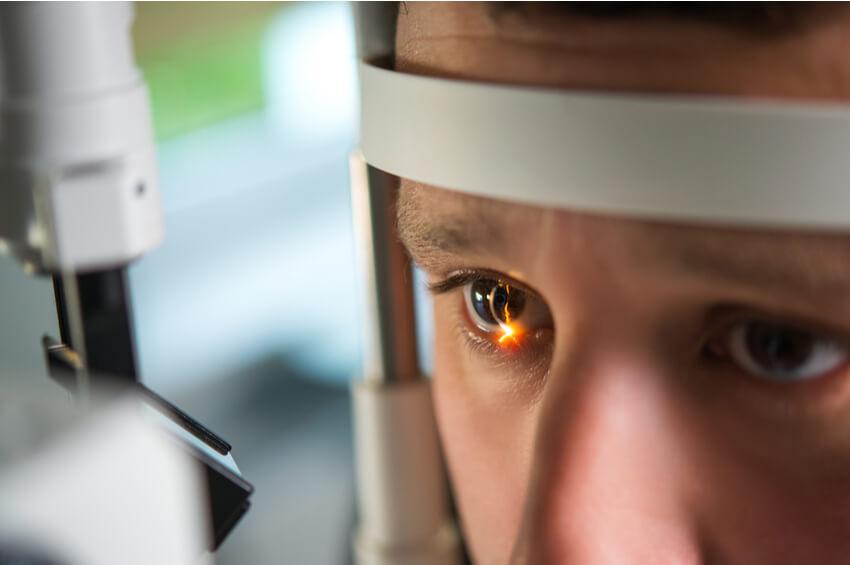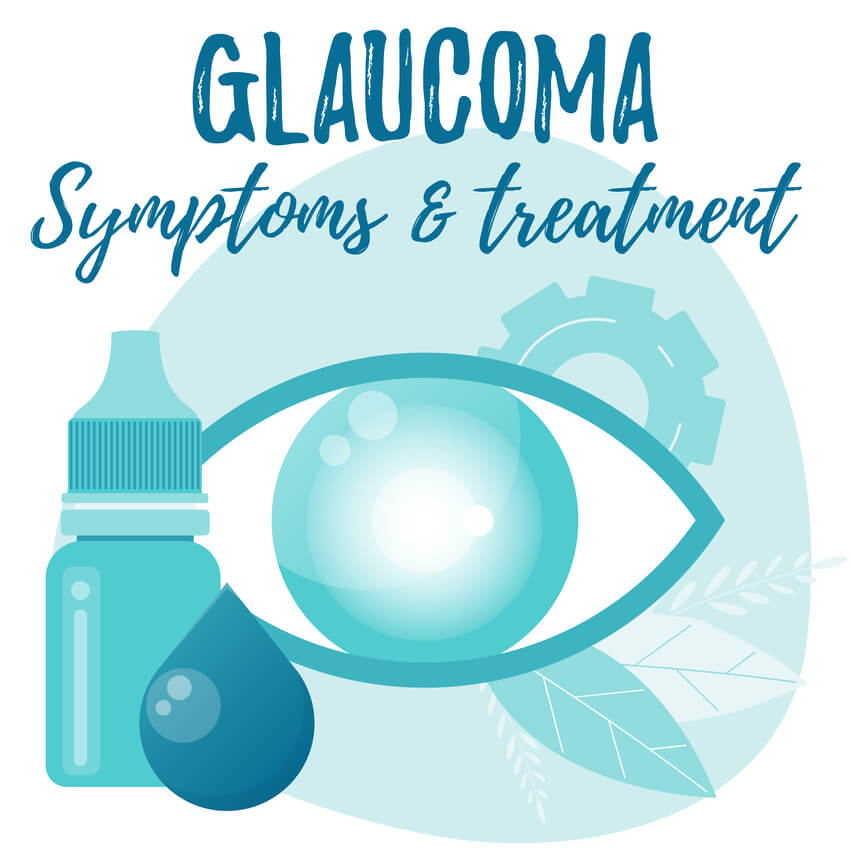Glaucoma is an eye disease that damages the eye’s optic nerve and may lead to vision loss or even blindness. It develops when fluid builds up, leading to increased pressure inside the eye. As the condition commonly develops slowly without obvious symptoms, early diagnosis through an eye exam and retinal photography is crucial. In this blog, we’ll cover the most common types of glaucoma and provide our top tips to protect your eyes.
Types of Glaucoma

The most common type of glaucoma is open angle glaucoma, which develops slowly over many years, usually affecting your peripheral vision first. It’s caused by the drainage channels in the eye becoming gradually blocked. You may notice head pain, deterioration of vision at dusk, and the appearance of a rainbow rim around sources of light.
A less common type is angle closure glaucoma. This is caused by the rapid build-up of fluid behind the eye, which might cause sudden severe pain, blurred vision, and nausea.
Who Is At Risk?
Although anybody can develop glaucoma, there are a few factors that can increase the risk, including age, ethnicity, and genetics. The condition is more likely to affect people aged over 60, as well as those of African or Asian descent. In addition, glaucoma tends to run in families and often develops in people who suffer from pre-existing medical conditions like diabetes or heart disease. Regular and long-term users of corticosteroids are also at an increased risk.
Book Your Eye Test and Protect Your Eyes

Known as the ‘silent thief of vision,’ it’s very difficult to detect early signs of glaucoma without having your eyes tested. An early glaucoma diagnosis is the key to successful treatment, preventing vision loss and any further eye damage. We can’t stress enough how important it is to get your eyes checked regularly.
If your vision is deteriorating or you’re noticing any issues with your eyes, please book an appointment at Murray Opticians in Drumchapel as soon as possible. Your eyes will thank you!
Bear in mind that if you are over 40 and have a family history of glaucoma, you are entitled to an NHS free eye test.

